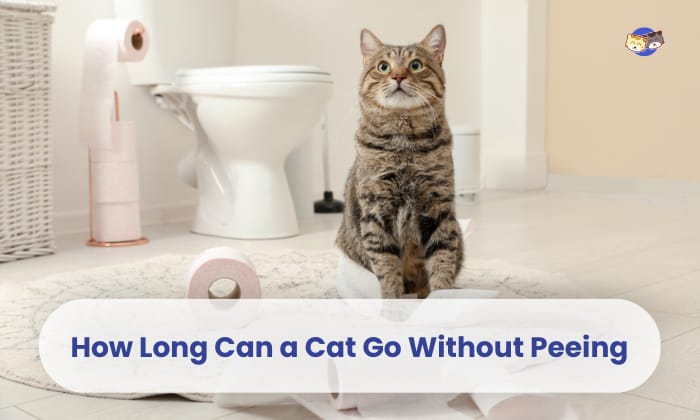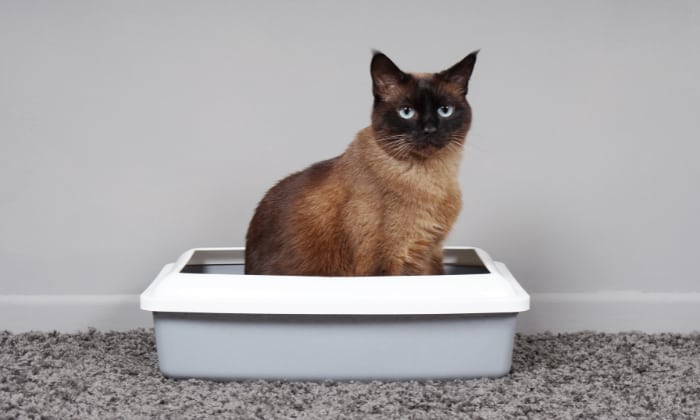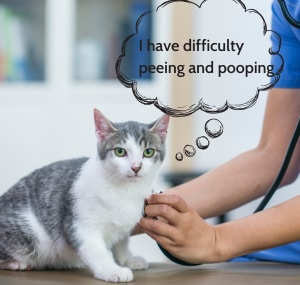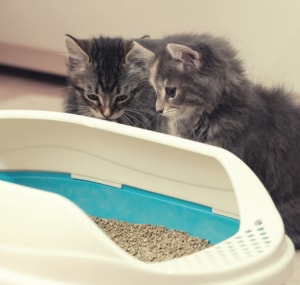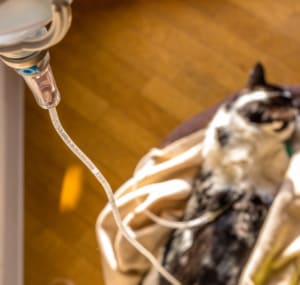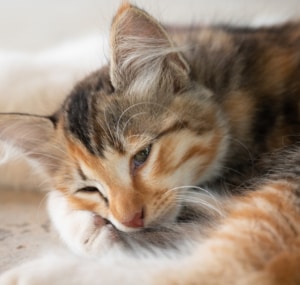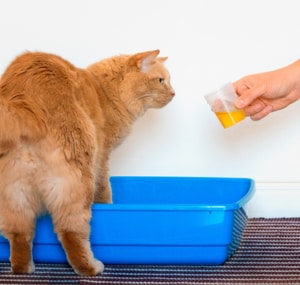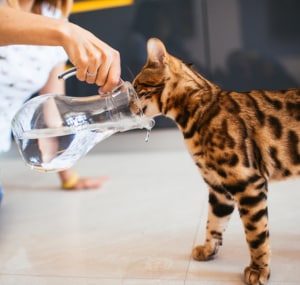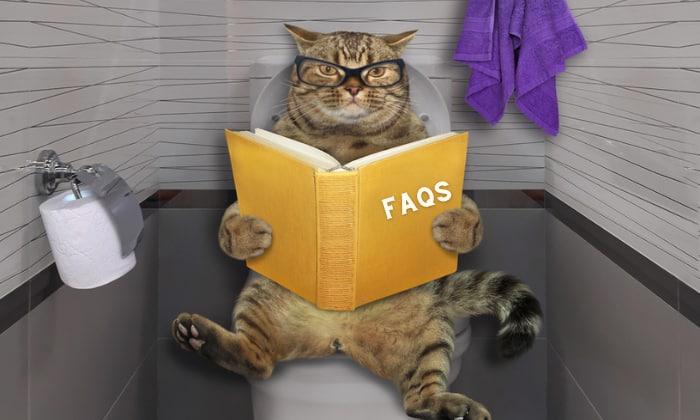If you’re a cat owner, you know that felines are notorious for their fastidiousness. From grooming themselves to keeping their litter box clean, cats tend to be creatures of habit.
However, what happens if your furry friend suddenly stops using the litter box? How long can a cat go without peeing, and when should you be concerned?
In general, cats can hold their pee for 24 to 48 hours.
In this article, we’ll dive into the world of feline bladder control and explore the potential causes of urinary problems in cats. So, let’s get started!
Table of Contents
How Long Can Cats Go Without Urinating?
As a cat owner, it’s important to know what to expect when it comes to your cat’s bathroom habits.
Cats can hold their pee for anywhere from 24 to 48 hours, meaning sometimes they can go 2 days straight. However, this time frame can vary depending on age, health, and hydration levels.
It’s essential to monitor your cat’s litter box habits and seek veterinary care if you notice any changes or irregularities.
If you notice your cat straining to urinate or not using the litter box in 24 hours, it’s crucial to take your cat to a veterinarian immediately.
Causes Why Cats Do Not Pee
There are several reasons a cat may not be able to pee, ranging from stress and anxiety to serious medical conditions. Here are some of the common causes:
1. Cystitis
Cats can suffer from various medical conditions that interfere with their urinary tract function. One such condition is cystitis, which causes bladder inflammation and can make it difficult for the cat to urinate.
Cystitis can progress to Feline Lower Urinary Tract Disease (FLUTD), a series of diseases and disorders affecting cats’ urethra and bladder, if not treated immediately.
Cystitis can also make your cat hold their poop. So, if you are wondering, why does my cat hold their poop and pee?, this disease might be the culprit.
To avoid the inflammation getting worse, make sure to visit a trip to your vet once you have noticed that your cat has difficulty peeing and pooping for up to 2 days.
2. Stress and anxiety
Although not as serious as medical ailments, stress, and anxiety can cause your pet to stop peeing. This stress could have been caused by changes in the home environment, such as new pets, relocation, and routine changes.
It could even be as simple as changing the litter boxes they now use. Cats become anxious when their habits and environment change abruptly.
To calm them, make it easy for them to adjust to a changed situation. It can be as simple as introducing them to a new pet or a visitor, creating a safe zone for them by allowing them adequate time to acclimatize to their new surroundings, and ensuring their litter box is in a location where they can pee and poop with ease and quiet.
3. Kidney failure
A kidney failure can cause your fur baby not to produce any urine at all. This is also called anuria, one of the common symptoms of kidney failure.
Some other symptoms include but are not limited to dehydration, lack of appetite, and physical weakness.
4. Hyperthyroidism
Another reason your cat suddenly stops urinating is due to an illness called hyperthyroidism – wherein your cat’s thyroid gland produces more excess thyroxine (a hormone) than a normal-functioning thyroid gland.
This mentioned hormone quickens your cat’s metabolism, causing various changes in their body, including weight loss and pain during urination.
5. Urinary infections
Because of a severe infection in its urinary tract, your cat may have stopped peeing. This could have been caused by disorders such as diabetes or high blood sugar levels. Other signs to keep an eye out for include the following:
- Peeing less often than normal or more frequently than usual
- Having difficulty peeing
- Peeing less frequently than normal
- Vomiting
If you observe these symptoms, take your pet to the vet right once for a urine sample and test.
6. Dehydration
If your feline is dehydrated, it causes them to have a condition called “oliguria”, which makes a cat urinate less than usual.
This condition is more frequent during summer, but, if you don’t give your cat enough water, there is a high possibility for them to have this condition.
Frequently Asked Questions
How often do cats pee?
This depends on the cat, but, in general, cats pee 2 to 4 times a day. But of course, your cat may also pee up to 6 times a day depending on how frequently they drink water, their bladder conditions, and their metabolism.
How long is too long for a cat not to pee?
This depends on the age of your fur baby. If you are asking, how long can a kitten go without peeing?
They probably have a shorter time to hold their pee due to their bladder size compared to an adult cat. So, expect your kitten to pee more frequently than an adult cat.
But suppose you are asking about an adult cat. In that case, it is a different topic since an adult cat already has fully developed its organs. Thus, it makes it more capable of holding their pee longer.
Usually, cats can hold their pee for up to 2 days. Any time more than 48 hours might need medical attention to ensure your cat’s health.
How long does it take a cat to pee after drinking?
My cat is eating and drinking but not peeing for a day and it got me worried. This may be your concern about your fur baby. Why wouldn’t your cat pee if it received enough water and food?
It might be because they chose to hold their pee. This is especially true if they see that their litter box is not too clean for their taste.
Although your adult cat can hold their pee for 24 to 48 hours, it is not the ideal thing to do for them.
If you think the problem lies with a dirty litter box, you might as well change it occasionally.
Is it normal for a cat not to pee for 24 hours?
Yes! It is normal. But I understand your worry about it.
My cat hasn’t peed in 2 days but acting normal; imagine my worry! However, it is still normal for their body capacity to hold their pee for 2 days.
Longer than 2 days could be dangerous for them. If they display such behavior, please immediately contact the vet for help.
What happens if my cat doesn’t pee after surgery?
If your cat just underwent surgery, not peeing is not a very good indication of their health. This behavior needs immediate care from a vet, especially if your feline is a male.
Your cat’s inability to pee might be the reason for its bladder and kidney toxins to expand. This will be a call for an emergency – because these toxins will start to move to the other organs of your cat, which might lead to a life-and-death situation for your cat.
How does my cat travel without peeing?
If you’re traveling with your feline, and you’re worried they might get a disease for not peeing during the trip (especially if it’s a long trip), don’t worry.
Adult cats can hold their pee for at most 48 hours. However, it is not recommended to happen very often due to the health danger it could impose on your feline.
Conclusion
How long can a cat go without peeing? It’s important to keep an eye on your cat’s urination habits and seek veterinary attention if you notice any changes or concerns.
Cats can go without urinating for longer periods than expected, but it’s not something to be taken lightly.
From medical conditions to environmental stressors, many factors can impact a cat’s ability or willingness to use the litter box.
By understanding these factors and taking steps to promote your cat’s physical and emotional well-being, you can help ensure they maintain healthy bathroom habits throughout their life.
You may be interested in:
- Will Neutering Stop Cat from Peeing Everywhere? Find Out Here!
- Why Is My Cat Peeing on My Bed? Discover the Reasons
- Discover Effective Smells that Deter Cats from Peeing Inside Your Home

I am Amy Sawy, a Doctor of Veterinary Medicine (DVM) graduate from the University of Kansas. y husband, Dr. Plummer, and I own a veterinary clinic in Phillipsburg, Kansas. In addition to my professional background, I am a devoted pet owner myself, with a household that includes dogs, rodents, and most notably, cats – a total of five felines in my home.
In 2020, I joined an organization as a professional writer, leveraging my experience and collaborating with my team to deliver the most valuable information for your cat’s care.


